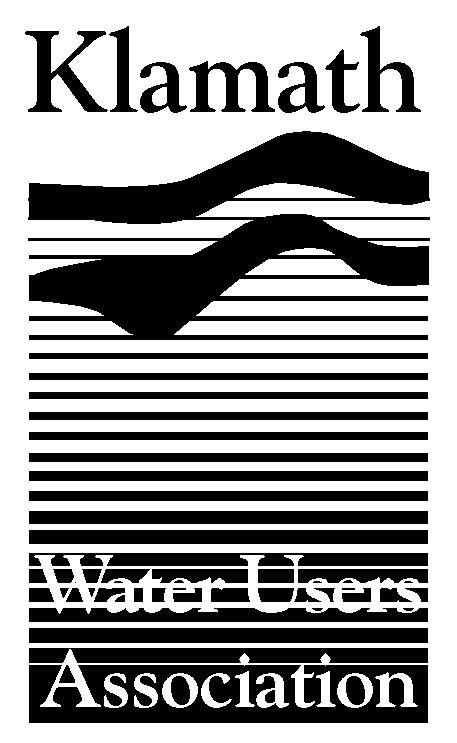
Our Klamath Basin Water Crisis
Upholding rural Americans' rights to grow food,
own property, and caretake our wildlife and natural resources.

Our Klamath Basin
Water Crisis
Upholding rural Americans' rights to grow food,
own property, and caretake our wildlife and natural resources.

Media Advisory For Immediate Release July 17th Congressional Field Hearing Slated for Klamath Falls: Community Leaders Plan Pre-Hearing March and Rally Will Myths and Sensationalism Continue in the Klamath Basin, or Can a National Academy of Sciences Report Provide a Blueprint Towards Collaborative Problem Solving? In the agricultural heart of the Klamath Basin, a congressional field hearing is planned for July 17th that will address a National Academy of Sciences (NAS) report that could act as a blueprint for change in the Klamath River watershed. The House Resources Committee will hold a field hearing in Klamath Falls, Oregon on the Endangered Species Act (ESA). The hearing, to be held at 9:00 a.m. on July 17 at the Ross Ragland Theater in downtown Klamath Falls, will cover the ESA's impact on the Klamath Project, one of the nation's oldest federal irrigation projects. A recent report completed by the NAS National Research Council (NRC) on Klamath River fishes will also be addressed at the hearing. Local community leaders are preparing for this important event, and are organizing a pre-hearing rally in Klamath Falls. "This field hearing is the first meaningful look at making constructive changes to the Endangered Species Act," said Rob Crawford, who farms near Tulelake, California. "The conscience of America knows it is time to begin cooperative approaches." The Klamath Project was the subject of international coverage in 2001 when ESA regulations protecting sucker fish and coho salmon forced the bulk of the project to virtually shut down its water delivery system for almost the entire growing season. Local business leaders estimate that the termination of water deliveries in 2001 inflicted $200 million worth of economic damage on the Klamath Basin community. "A lot of hard working people were damaged by ESA-driven decisions in 2001," said Randy Shaw, a Klamath Falls realtor and former logger. "The draconian implementation of the ESA came within a whisper of killing our community." Although federal and state efforts have focused on resolving the situation, the Klamath project was nearly shut down last summer because of ESA requirements. Klamath irrigators face another dry summer this year, prompting many worries of another devastating irrigation water cut-off. "The tribes, the farmers, the environmentalists - everyone’s unhappy. Current application of the ESA doesn’t work," said Tracey Liskey, who farms near Lower Klamath Lake. "This is ridiculous." Meanwhile, an NRC Report last year questioned some of the underlying endangered species science behind the 2001 shut down. More importantly, it recommends a watershed-wide approach to solving the fishery challenges of the 10.5 million acre river basin. "The upcoming field hearing will provide a great forum to focus the spotlight on preventing another unjustice like the one that occurred in 2001 in the Klamath Basin," said Dan Keppen, Executive Director of the Klamath Water Users Association. "Constructive approaches can be taken to move in a new direction, and the road map that can take us there is the NRC report." In written testimony submitted to the House Resources Committee this week, KWUA outlined its vision of how the NRC report can be used to change the status quo in Klamath. "We hope the NRC report can be used as a catalyst to improve the collaboration required to address the basin-wide problems we face," KWUA notes in its testimony. "We know we can develop locally derived solutions to address most of the NRC report recommendations." KWUA has advocated that solving the problems of the Klamath River watershed requires a coordinated management program that spans two states in a watershed that is characterized by a strong federal presence. Competition among stakeholder groups – including four tribes, agricultural water users, and countless environmental groups – is fierce. In order to be successful, we need to better understand the real state of the watershed by developing the facts and best possible information to make the best possible decisions. "Environmental sensationalism – like that promoted in the wake of the 2002 fish die-off on the lower Klamath River- scare the public and make us more likely to spend our resources and attention solving phantom problems while ignoring real and pressing issues," said Keppen. Event organizers have asked the community to meet at Veteran’s Park in Klamath Falls at 7:00 on the morning of July 17th. The assembled crowd will then march to the Ross Ragland at 7:30 a.m. for a rally and speeches from invited guests. The rally is scheduled to begin at 8:00 a.m., and the theatre doors will be opened at 8:30 a.m. The committee hearing is scheduled to last from 9:00 a.m. to 11:30 a.m. Media credentials will be required for admission into the hearing. Credentials can be reserved in advance by calling Jennifer Holl at (541)-798-5096 or via email at: Jennifer@ahern-associates.com. On the morning of the event, credentials will be available for pick-up outside of the Ross Ragland Theatre. For more information or to make special arrangements, please call Jennifer Holl at (541)-798-5096. The Klamath Water Users Association is a non-profit corporation based in Klamath Falls, Oregon that represents the Klamath Project rural irrigation districts, local special districts, and private concerns who operate on both sides of the California-Oregon border.
|
Home
Page Updated: Thursday May 07, 2009 09:15 AM Pacific
Copyright © klamathbasincrisis.org, 2004, All Rights Reserved